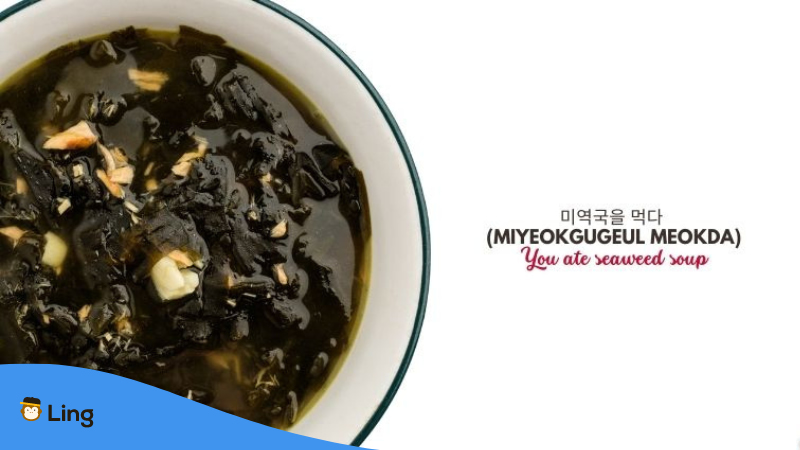What makes the Korean language beautiful? Well, it’s the incredible culture behind it! So, let’s unravel some powerful Korean idioms 관용구 (gwanyonggu) today to appreciate the language and Korea better!
Could you imagine how life would be without idioms? We frequently resort to using idioms and proverbs when specific circumstances happen. When we want to offer guidance to another person, we often turn to these, as they are perceived as full of wisdom.
In this blog, we will be learning about Korean idioms. For Korean language learners, this will be beneficial because you can take your language skills to the next level. This will also help language learners to sound more like native speakers, which I think everyone is hoping for. So, let’s not wait any longer and learn some idioms.
How To Say “Idioms” In The Korean Language?
The Korean word for idioms or idiomatic expressions is 관용구 gwanyonggu. Korean idioms are phrases native speakers use in everyday life to express their opinions in a creative and non-literal way. It is a manifestation of how colorful the culture and the language are.
Idiomatic Expressions Vs. Proverbs
Idioms and proverbs are expressions used in certain situations, like giving advice or guidance. But some people are confused with these two. So, let me quickly walk you through their key differences.
An idiom is a phrase that has its meaning but cannot be understood in everyday language. Idioms are expressions that have a different and more profound meaning from their literal meaning. It is used in reading, writing, and speaking to mean something other than what it says. Usually, people use it in poetry, but you can also hear these words spoken in conversations and movies.
On the other hand, proverbs are wise sayings that are used to give advice and suggestions about our daily lives. Unlike idioms, proverbs use literal meanings. There are also a lot of common proverbs to learn, but we will focus on idioms in this blog. If you want to read about traditional Korean proverbs, you can check out this blog.
Here is an example expression that can help you understand the difference between proverbs and idioms more: No pain, no gain (Korean idiom) and Work hard to get what you want (Korean Proverb).
Common Korean Idioms
If you have watched at least one Korean movie or Korean drama, you might have heard some Korean idioms that surely inspired or motivated you. So, let’s widen your knowledge about Korean idioms. Here are some idioms with the words’ literal translation in English.

1. 그림의 떡 (Geurime Ttok)
Literal Translation: Rice cake in a picture
Meaning: Something you long for but are unable to get or cannot afford
Do you ever dream of something you can’t still achieve until now? Well, the best idiom to describe that thing is “Rice cake in a picture (그림의 떡 Geurime Ttok).” Rice cakes are one of the staples in Korean cuisine. If the English language has bread and butter, the Koreans have rice cakes.
Rice cakes are mostly eaten as snacks but are also served at celebrations and formal occasions. Rice cakes also symbolize fortune and giving, so using them in the context of this Korean idiom is ideal.

2. 식은 죽 먹기 (Sigeun Juk Mokkki)
Literal Translation: Like eating cold porridge
Meaning: It’s a piece of cake/ It’s a cinch to accomplish/ It’s easy as pie.
This Korean idiom is the opposite of the previous one. Since a rice porridge is easy to prepare and digest, it’s a perfect thing to use in the Korean idiom “식은 죽 먹기 (Sigeun Juk Mokkki)” which means a task or job that can be easily accomplished.

3. 눈이 높다 (Nuni Noptta)
Literal Translation: Eyes are high
Meaning: having unrealistically high standards or expectations/ lofty expectations
Korean parents have high standards for their children that can be unrealistic or lofty sometimes. The idiom that Koreans use for having high standards is 눈이 높다 (Nuni Noptta).
4. 눈이 뒤집히다 (Nuni Dwijipida)
Literal Translation: One’s eyes turn upside down
Meaning: to be mad, insane/ to exhibit madness or insanity
Do you remember how Mi-ho got mad at Hye-in when she tried to hurt her? Mi-ho’s eyes turned upside down, considering she’s a gumiho. She was even called “scary eyes” by the chicken vendor.
This may be only a Korean drama, but it pretty much explains how the meaning of the idiom 눈이 뒤집히다 (Nuni Dwijipida). When you’re outraged, your eyes can tell it. You can be blinded by your madness, just like when Park Saeroyi faced the person who accidentally killed his father.
5. 눈이 맵다 (Nuni Maeptta)
Literal Translation: Spicy eyes
Meaning: Your eyes are hurting
If you’re fun of the American series F.R.I.E.N.D.S, the expression 눈이 맵다 (Nuni Maeptta) is the best idiom to use for Phoebe’s iconic line “My eyes! My eyes!” But, if you want a Korean version utilizing the context of this idiom, the perfect example is when Hae-Kang’s eye injury took a serious turn in the K-drama “Racket Boys.”
6. 눈코 뜰 새 없다 (Nunko Tteul Sae Optta)
Literal Translation: I don’t have time to open my eyes and nose
Meaning: You’re pressed for time and can’t afford to waste it.
This Korean expression is very relevant to Korean culture. They are known for their Pali-Pali Culture, which means getting things done so there can be no time wasted.

7. 가재는 게 편이라 (Gajaeneun Ge Pyonira)
Literal Translation: The crayfish sides with the crab
Meaning: Those who are like stick together./ Like-minded individuals tend to stick together.
The Korean equivalent of the English idiom “Birds with the same feather flock together.” This is a company literal translation that conveys that people with certain features or characteristics tend to stick together. The perfect example is the cast of Boys Over Flowers Joon-pyo, Ji-hoo, Woo-bin, and Yi-jeong. They are called F4 and are all rich, handsome, and have powerful families, so they tend to think alike.

8. 꼬리를 치다/흔들다 (Kkorireul Chidaheundeulda) /
Literal Translation: To flick/Wag one’s tail
Meaning: an act of flattery or enticement
Remember when Mi-ho (from My Girlfriend is a Gumiho) felt excited and flattered when Dae-wong was doing nice things for her? She told Dae-wong that her tail would pop out. This is a perfect example to explain this idiom.

9. 바람을 넣다 (Barameul Nota)
Literal Translation: To put air in/inflate
Meaning: to energize, motivate, spur on, or induce
When you’re feeling down, having someone who will put air in you is important, just like when Yu-rim was criticized for competing as a Russian citizen for fencing in Twenty-Five Twenty-One. The idiom that Koreans use for that kind of situation is 바람을 넣다 (Barameul Nota).

10. 배가 아프다 (Baega Apeuda)
Literal Translation: Stomach hurts
Meaning: To be incredibly envious/jealous
In K-dramas, you see a lot of scenes where they are getting jealous, like the Dong-man in Fight For My Way, Kang Mo-yeon, and Myeong-joo in Descendants of the Sun, and of course, Hong Du-sik in Hometown-Cha-Cha-Cha.
The Korean idiom 배가 아프다 (Baega Apeuda) may be used in these situations, but it is often used in the more serious levels of jealousy, like when you see someone close to you succeed in life, and it feels like a punch in a gut for you. The perfect example is when Won Hae-yo got jealous of Sa Hye-jun when his career took off.

11. 파리를 날리다 (Parireul Nalrida)
Literal Translation: Have flies buzzing around everywhere
Meaning: No customers / Slump
Calling all Reply 1988 fans. Did you notice someone, even one person, bought a clock from the clock shop of Choi Taek’s dad? If not, the Korean idiom for that is “파리를 날리다 (Parireul Nalrida).”
12. 서울에서 김서방 찾기 (Soureso Gimsobang Chatkki)
Literal Translation: Like trying to find Mr. Kim in Seoul
Meaning: Something that is impossible or extremely difficult to find
If you are asked to write Korean people having Kim as their last name, you’ll probably have a long one. This is because 21.5% of the population of South Korea has Kim as their surname, making it the most common surname in the country.
With this, it’s a perfect analogy when something is extremely difficult or impossible to find. The Korean expression is “Like trying to find a needle in a haystack.” One excellent example is when the soldiers from North Korea went to South Korea to find Captain Ri. For a city as big as Seoul, it’s tough to find a person without having much information.
13. 가슴에 못을 박다 (Gaseume Moseul Baktta)
Literal Translation: To hammer a nail into the heard
Meaning: To hurt someone emotionally
Did you also cry out when Dal-mi from the K-drama Start-Up discovered that Ji-pyeong and Do-san lied to her? Although it happened unintentionally, it hurt Dal-mi emotionally. So, this is a perfect situation to use the idiom 가슴에 못을 박다 (Gaseume Moseul Baktta).
14. 개천 에서 용났다 (Gaechon Eso Yongnattta)
Literal Translation: A dragon was born in a stream
Meaning: Someone who comes from a small town with an average background but has done very well.
If you have watched the K-drama Record of Youth, you have surely witnessed how Sa Hye-jun reached his dreams of becoming a great actor despite being poor and having many personal problems. Even though he has no financial support and connections like Hae-yo, he still managed to become one of the best actors. This is an example of a situation where you can use the idiom 개천 에서 용났다 (Gaechon Eso Yongnattta)

15. 김칫국부터 마시지 말라 (Gimchitkkukpputo Masiji Malra)
Literal Translation: Don’t drink the kimchi soup first.
Meaning: You should wait until what you want happens.
Since kimchi soup is traditionally served as a digestive aid in South Korean cuisine, it is best consumed after the main dish has been thoroughly consumed. This proverb states that you should not expect too early but wait until the scheduled outcome occurs before taking action. ‘Don’t count your chickens before they’ve hatched!’ is a brave literal translation of English idiomatic phrases.

16. 기가 막히다 (Giga Makhida)
Literal Translation: One’s energy becomes stuck or blocked
Meaning: to not be able to say anything when you hear something crazy
Remember when Lee Dam discovered that Shin Woo-yeo is a gumiho? How about when Deok-sun and Dong-Ryong heard that Sun-woo got back with Bo-ra? Have you noticed how they have become speechless? Well, you can say that their energy becomes stuck 기가 막히다 (Giga Makhida).

17. 귀 빠진날 (Gwi Ppajinnal)
Literal Translation: The day one’s ear was pulled out
Meaning: Your birthday
This is an interesting Korean idiom because it’s rare for a country to refer to birthdays this way. This Korean phrase more or less translates to “your birthday,” since when you were born, your entire body, including your ears, was expelled from your mother’s womb.

18. 남의 떡이 더 커보인다 (Namui Tteogi Deo Keoboinda)
Literal Translation: Other’s rice cakes look even bigger
Meaning: Someone who constantly wants what they don’t have
This is another Korean idiom that includes rice cake. This is used to describe a person who always thinks what they don’t have looks better than what they do. Someone who is constantly comparing their lives to other people around them. This idiom can teach someone how to be grateful for what they have.

19. 금강산도 식후경 (Geumgangsando Sikhugyeong)
Literal Translation: You can enjoy Mount Geumgang after eating
Meaning: You can’t enjoy something great if you’re hungry.
If you aren’t completely satisfied, you won’t be able to get the most out of anything, no matter how remarkable it is. Whatever the case, if you aren’t fully satisfied, you will be unable to appreciate it truly. But what does Mount Geumgang have to do with this?
North Koreans have always revered Mount Geumgang for its stunning views, dating back to ancient times. As a result, your mind will be drawn to your empty stomach, and you will miss out on the beauty of the mountains.
20. 고래 싸움에 새우 등 터진다 (Gorae Ssaume Saeu Deung Teojinda)
Literal Translation: When whales fight, the shrimp’s back is broken
Meaning: The innocent suffer when two giants fight.
The Korean peninsula has suffered a lot during different wars, and a strong proof of that is the separation of North and South Korea. Koreans often use this idiom to talk about how their country is taken advantage of by its bigger, stronger neighbors.

21. 원숭이도 나무에서 떨어진다 (Wonsungido Namueseo Tteoreojinda)
Literal Translation: Even monkeys can fall from the trees
Meaning: It’s okay to fall or make mistakes, but you need to get back up./ Mistakes happen.
Korean dramas like Start-up, Law School, Twenty Five Twenty One, Itaewon Class, and Hometown Cha-Cha-Cha remind us that it’s okay to make mistakes sometimes as long as you keep trying. If you want to give this as advice to another person, you can say 원숭이도 나무에서 떨어진다 (Wonsungido Namueseo Tteoreojinda).

22. 얼굴이 두껍다 (Eolguri Dukkeopda)
Literal Translation: Having a thick face
Meaning: Shameless
We all know people/people in our lives who are not ashamed or embarrassed to do anything. It can refer to people not being ashamed of showing their true personality to Deok-sun’s personality in Reply 1988. A thick face might look cute in some situations, but there are also situations where being shameless can be too negative, which isn’t good in conservative Korean culture.

23. 미역국을 먹다 (Miyeokgugeul Meokda)
Literal Translation: You ate seaweed soup
Meaning: To fail a test
We all know how complex the Korean education system is, so tests are a big deal. They even go to cram schools just to avoid “eating seaweed soup” or, in simple terms, failing a test. But why do Koreans use seaweed soup?
Seaweed soup has a slimy texture. Koreans often say that they “slipped off” a test when they didn’t do well on it. So, if you say you ate seaweed soup, it means you failed an exam or think you did.

24. 시작이 반이다 (Sijagi Banida)
Literal Translation: The beginning is half
Meaning: Well-started is half-done.
If you have decided to do something, start it properly by planning and making good decisions. Put your heart into it and do it as perfectly as you can because if you’re just doing something to finish it, you’ll waste your time and effort when something goes wrong.
Other Korean Idioms
Learning Korean Is Like Eating Cold Porridge!

Do you want to learn Korean but are scared to start? Do not worry because learning Korean is like eating cold porridge. So, if you want to kickstart your success in Korean language learning, you may take advantage of technological advancements. But, finding a perfect language-learning platform is like trying to find Mr. Kim in Seoul. There’s a lot to choose from, but the Ling app is what you should consider.
Say hello to hassle-free learning because you can learn Korean and other languages anytime and anywhere. With the advanced and well-developed features it offers, the Ling app can be your partner in achieving your language goals.
Just simply go to the website or download the app on the Play Store or App Store. Start your language learning in the right way. Start your Korean lesson with the Ling app, and you’re halfway done already!












